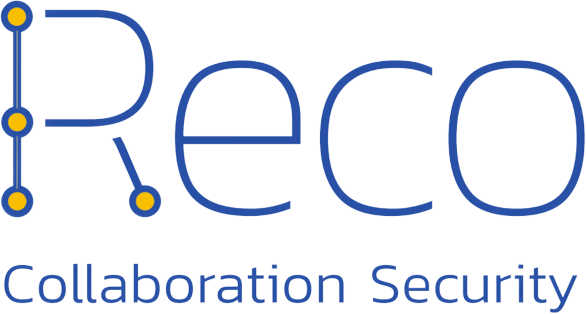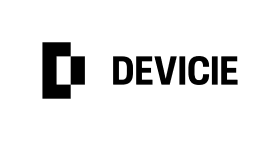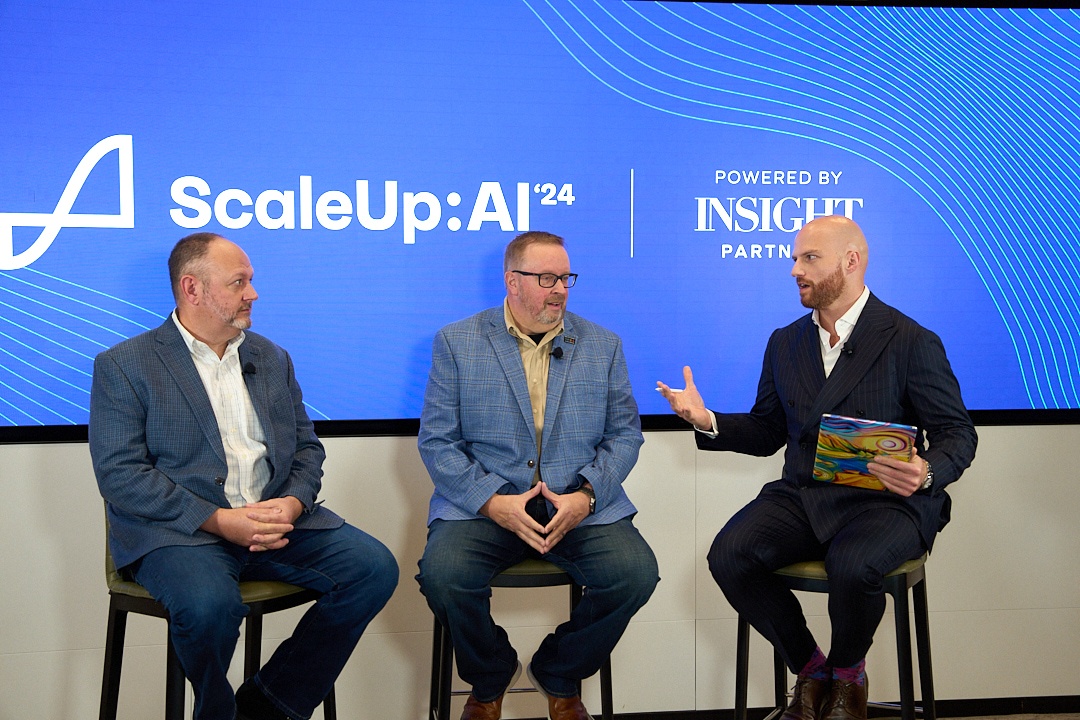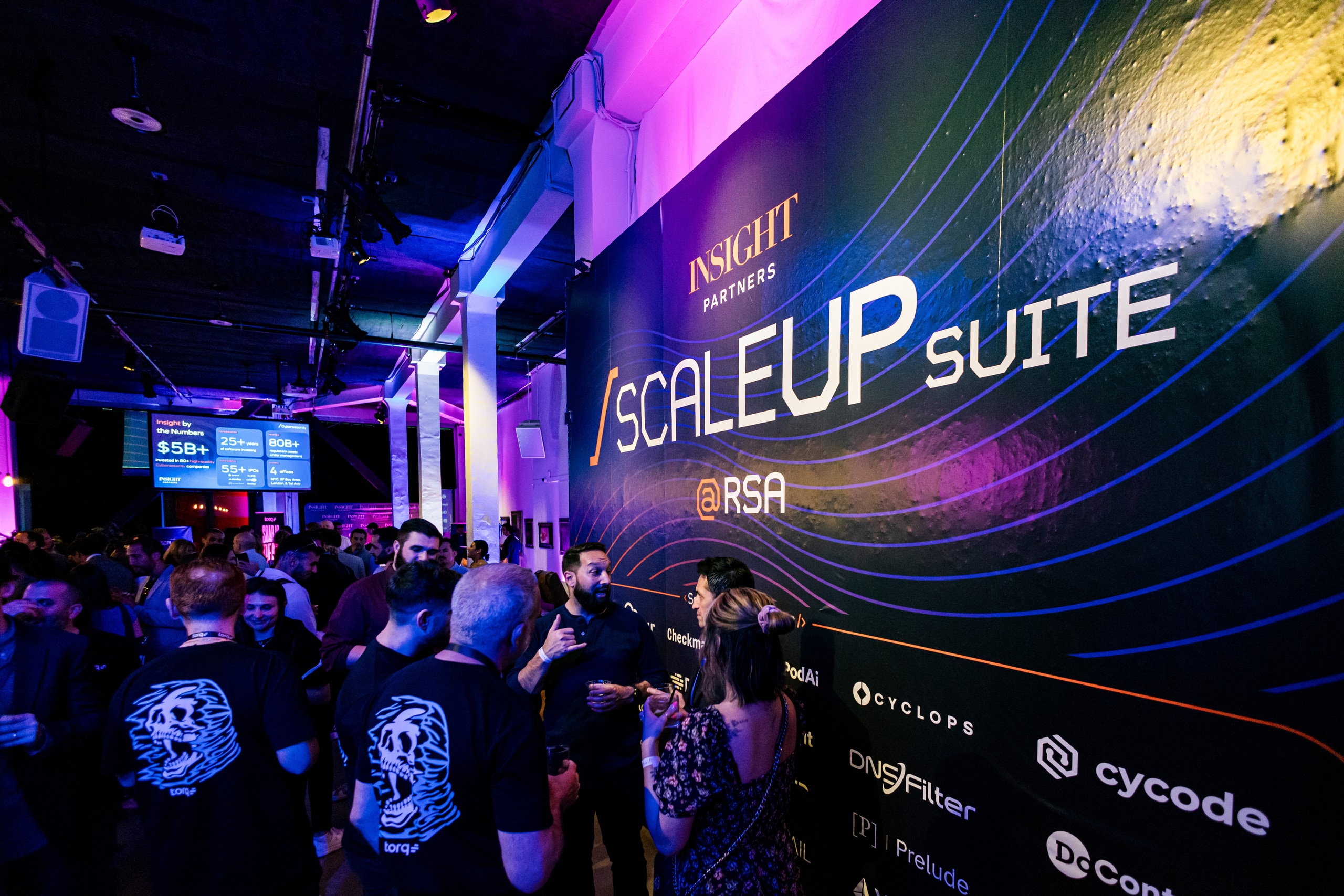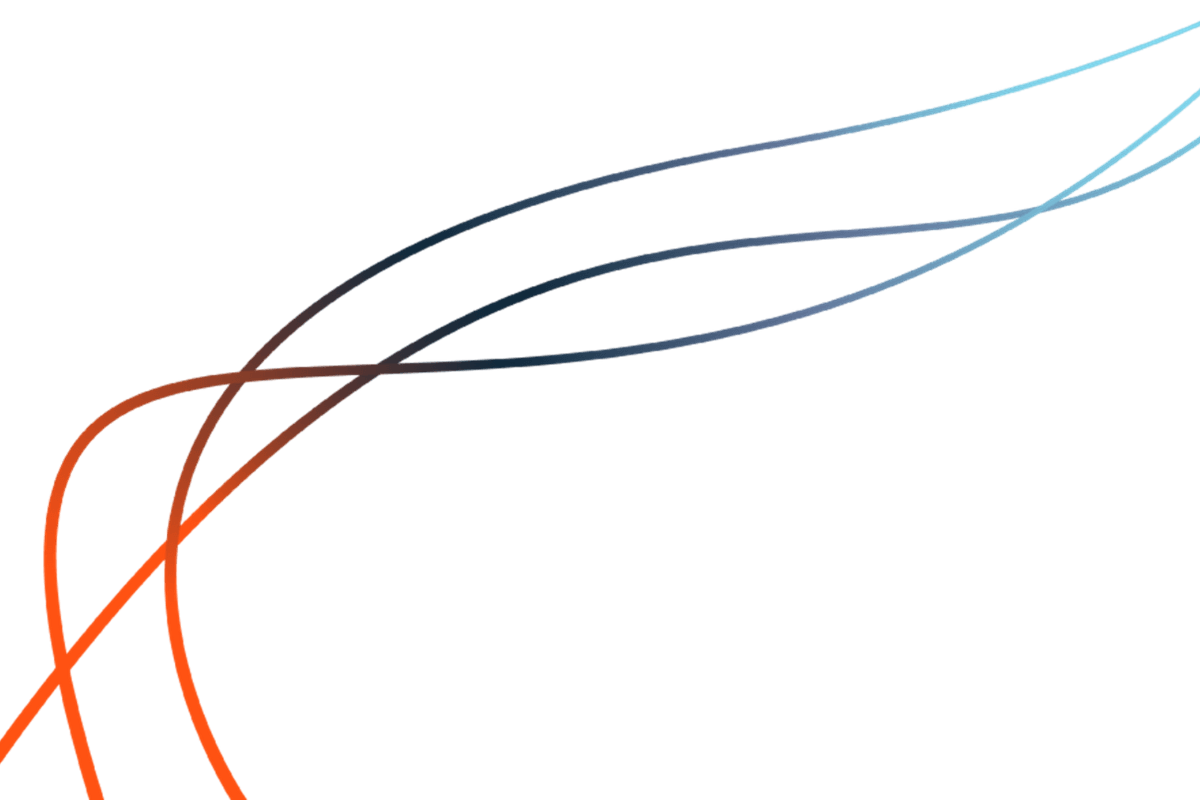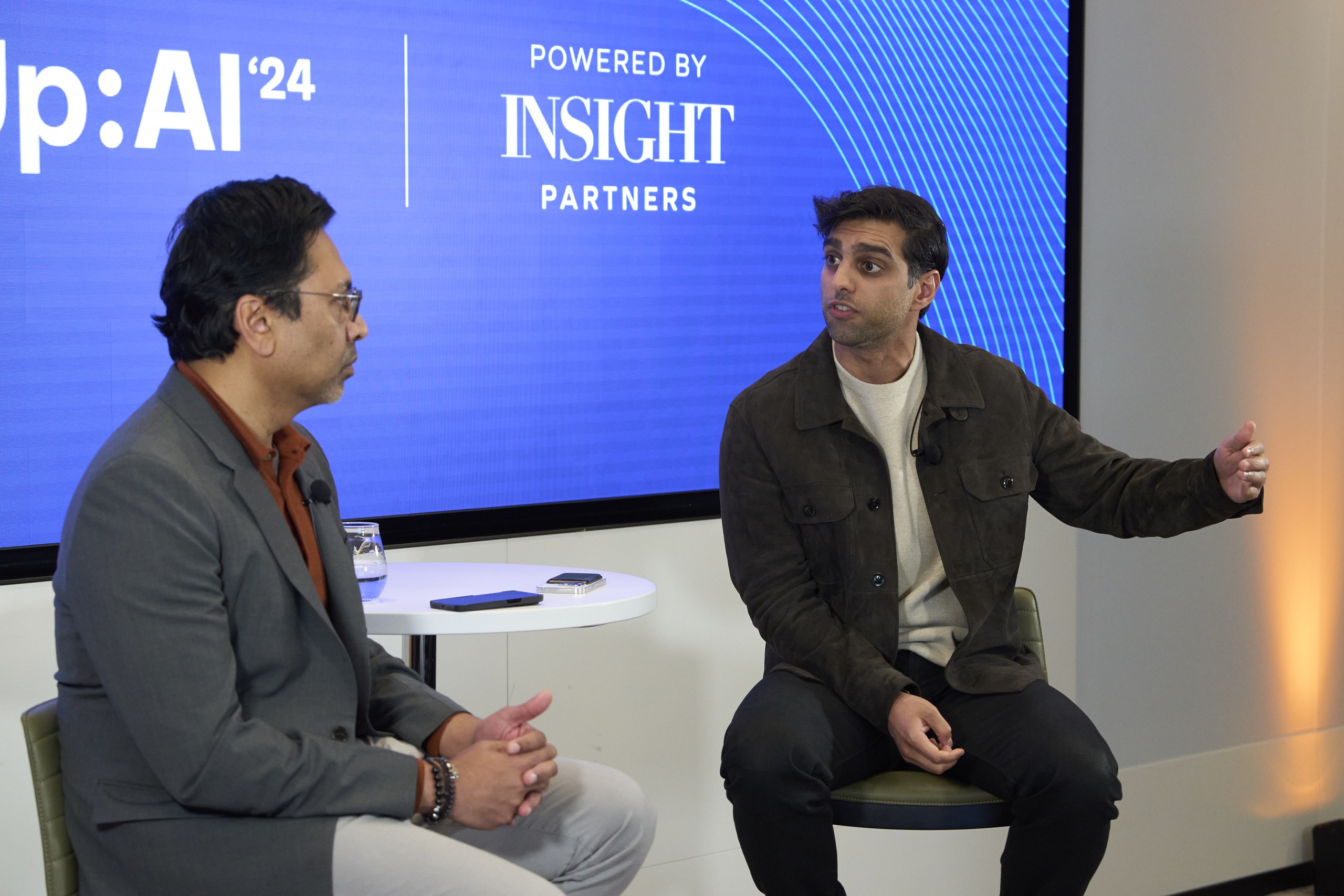CEO Amitai Ratzon’s results-oriented attitude is forging Pentera’s cybersecurity success
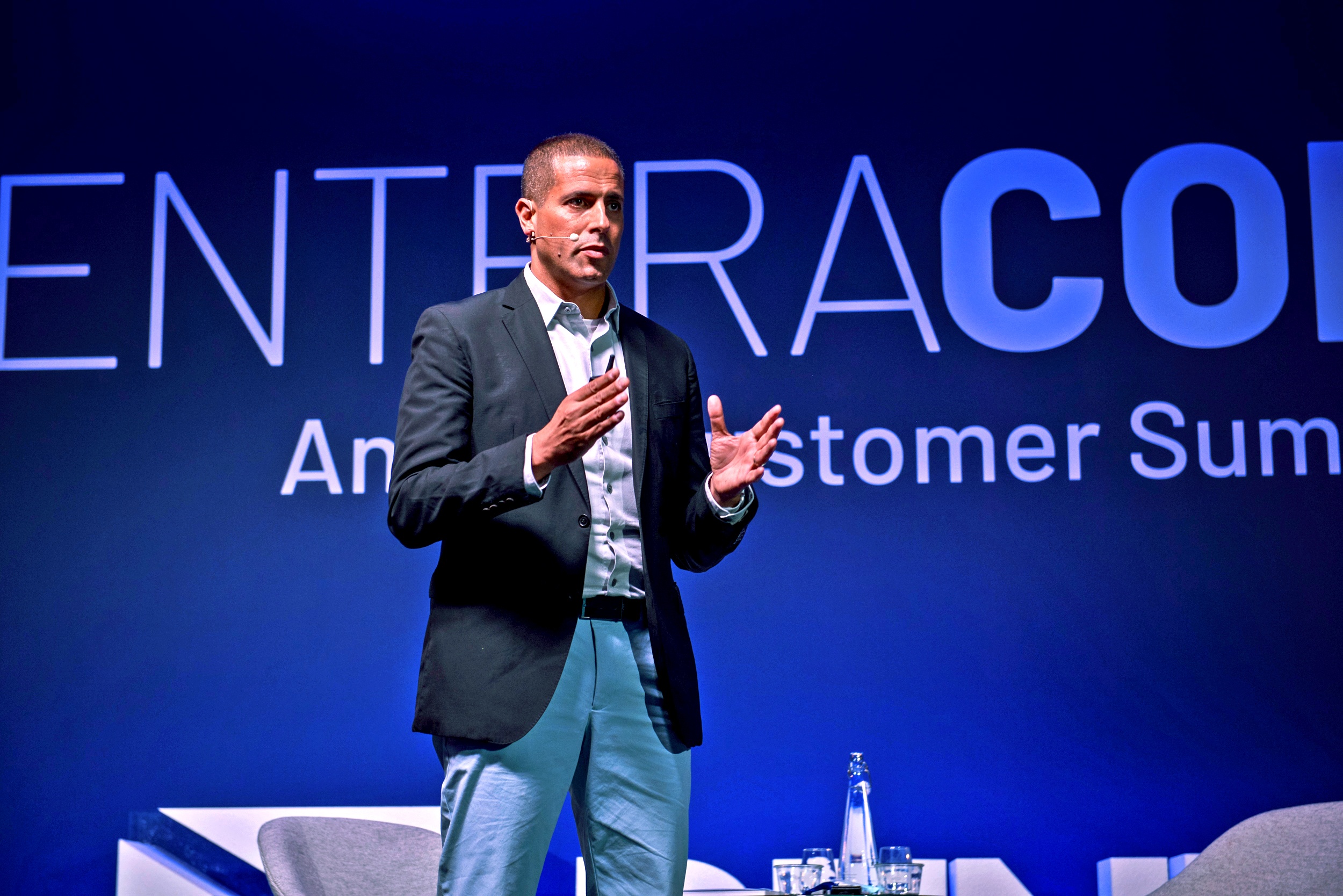
Before Amitai Ratzon became CEO of Pentera, he was a VP of sales in the world of fintech ScaleUps. “I get [things] done,” he says, simply. “In every sales role I’ve had, my team has outperformed expectations. My bible is: lead from the front, don’t follow textbooks, and uphold operating discipline.”
“Prior to Pentera, I’d never worked in cybersecurity. CEOs in this industry typically come from an elite tech background,” he continues, “but ours is not your typical founding team story.”
Founding Pentera in 2015 — formerly Pcysys — Arik Liberzon created the logic and wrote the code, and Arik Faingold began hunting for a CEO to take the startup forward. Ratzon was Faingold’s first choice, and in September 2017, he met Liberzon for lunch.
“It was a blind date in an Asian fusion restaurant,” Ratzon recalls. “We were a pair of 40-year-old hopeless optimists imagining how we would build a business like no other.”
“A match made in heaven”
The two men soon realized that while, on paper, they were very similar — born one month apart, family men with military backgrounds — their skills were different yet complementary. Liberzon had the technological know-how, and Ratzon had the sales and go-to-market pedigree.
“Arik didn’t want to be CEO, and I didn’t want to be him,” Ratzon says. “We were a match made in heaven.”
The pair assembled a leadership team, cherry-picking talent from their extended networks, like Aviv Cohen for CMO and Ran Tamir for CPO. “Arik knew who we needed from the tech space, and I knew the best from the marketing and sales domains,” Ratzon explains.
Pentera has pioneered a new approach to detecting and responding to cyber threats. Unlike many companies that simulate a hack, Pentera launches a real attack — albeit a benign one — mimicking real hackers, in order to test the security controls of an organization’s entire infrastructure and exploit weaknesses.
“We get straight to the crown jewels,” explains Ratzon.
While most cyber companies offer week- or month-long trials for prospective customers to evaluate their software and see its value, Pentera requires just six hours. “That’s all it takes,” he says.
While most cyber companies offer week- or month-long trials for prospective customers to evaluate their software and see its value, Pentera requires just six hours. “That’s all it takes,” he says.
Leaning into team experience
Pentera is used by 1,000 customers as of April, from multinational retailers to global banks and hedge funds to national infrastructure organizations. With a 350-person team, Pentera now has a presence in 20 countries.
If you ask Ratzon how he and the team have made Pentera such a success, prepare for a multi-faceted answer. There’s a lot of secret sauce here. The senior leaders are all over 40, and Ratzon credits this maturity for Pentera’s supercharged growth.
“We all have families, which means there’s less ego.” Back in 2018, the top brass sat down to discuss what kind of culture they wanted to build at Pentera. “We have all been burned before, and we decided to leave all the bad outside Pentera, bringing only the good,” Ratzon explains.
“We never make excuses; we find solutions”
Discipline and teamwork are strong values at play within Pentera.
“We never make excuses; we find solutions,” says Ratzon. “We lead from the front and level with our people about the challenges we face. We also focus on internal training and promotions from within.”
Staff are allocated stock options in Pentera when they join. “You get more as you continue to meet our expectations in the company,” Ratzon says. “We really invest in our people.”
As a result, staff attrition is extremely low, with many team members building long-term careers at the fast-growth company.
Ratzon may be the CEO but he is in constant contact with frontline sales. “I’ve been traveling for the last two months,” he says. “I’ve gone from Spain to Houston, Brazil to the U.K.” Spending time with the sales team as they work on increasing Pentera’s international footprint has been invaluable, he reveals. “I’m in the field with our people. I hear direct feedback on our product. I know about any blind spots before they become an issue.”
Scale up your career: See all open roles at Pentera on the Insight Partners job board.
The investor POV
“These guys have never missed a forecast, hitting each goal, quarter on quarter, like clockwork.”
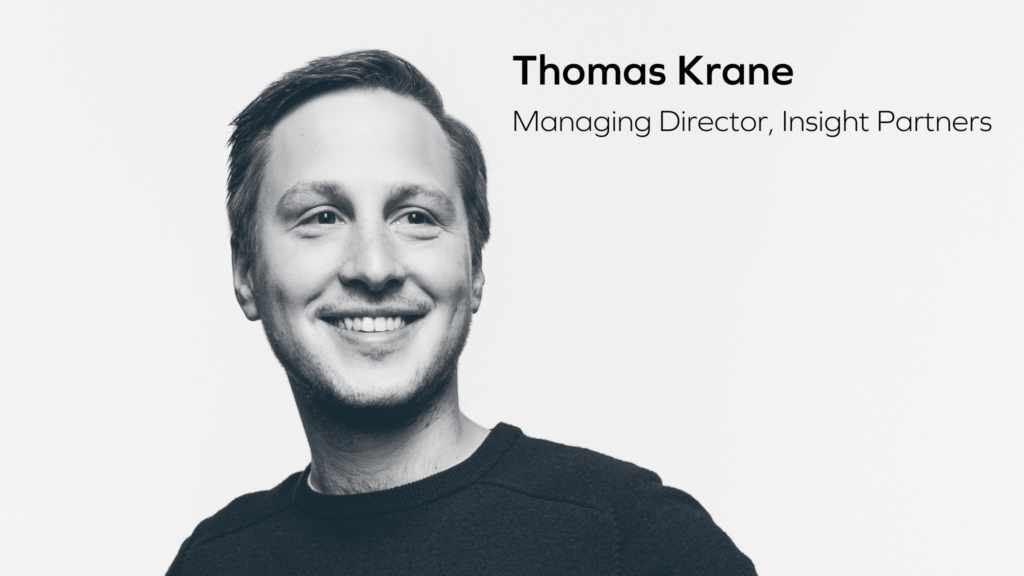
Managing Director Thomas Krane, who now sits on Pentera’s board, first started chatting with the founders in 2018. He explains that there are a lot of “smoke and mirrors” in the cyber industry. It takes time to work out whose technology is unique.
“You see lots of companies all making similar claims,” he says. “We kept in touch for two years, building a relationship and pulling back the curtain on their product.”
In early 2020, Krane flew to Israel to talk to the team about supporting their future growth. His previous cyber investments include the likes of Tenable and Darktrace. “He was only 30 when we met, which may seem young, but had so much experience running deals,” Ratzon says. “He knew that what we needed was to put the Pentera train on the right rails.”
“It was my dream to have Insight as an investor,” Ratzon adds. “It’s not only like I’m admitted to Harvard. It’s that I’m the only student admitted to Harvard in my class.”
“Amitai and Arik are a powerful combination, and we liked the unique way they had joined forces,” Krane says. “Too many cyber companies come to market with amazing technology but a major deficiency when it comes to the go-to-market side of the equation.”
A journey of continuous adaptation
Insight invested in Pentera’s Series B in 2020, the deal closing in the summer, a few months into the pandemic. Krane praises Ratzon’s ability to flex and adapt his plans as circumstances change.
“Lots of CEOs were telling us, ‘We can’t talk. Everything’s on hold because of COVID’,” says Krane. “At Pentera, they said, ‘We’re still going for it. Our projections haven’t changed.’ They reconfigured their product, so they didn’t have to be on premises to install.”
The global tech industry was shaken by macro corrections in 2021 and 2022, but Pentera has emerged unscathed. “They are in the minority of companies that weren’t forced to do a reduction in workforce,” Krane says. “Pentera’s operating discipline and culture have proven to be great differentiators in times of macro challenges.”
Insight encouraged Pentera to consider new revenue streams and upselling opportunities. “We were a one-trick pony,” admits Ratzon. “Now we have six products.”
The company’s approach to international expansion hasn’t followed a typical tech playbook. “Most companies I know, once they’ve raised a Series A, just focus on the U.S.,” explains Ratzon.
“They relocate to Silicon Valley or Boston or New York, but Pentera never followed that template. For us, Germany, Sweden, and the UAE have been just as attractive as the U.S. That’s been our secret weapon. When Japan is having a bad quarter, Spain is doing great. Insight trusted us to follow our own path.”
The power of a supportive investor
Insight helped Pentera solve three key challenges. The first was all about the brand. “Pentera was called Pcysys, and no one could pronounce it,” says Krane. “We helped them catalyze under the Pentera brand.” Gary Survis, operating partner in Onsite’s Marketing Center of Excellence (COE), further explains Pentera’s brand journey: “Many of our portfolio companies ask if it is too early to invest in a brand. The answer is it is never too early, and Pentera has embraced the importance of creating a brand in the noisy cybersecurity space from the onset.”
“Many of our portfolio companies ask if it is too early to invest in a brand. The answer is it is never too early, and Pentera has embraced the importance of creating a brand in the noisy cybersecurity space from the onset.”
The second challenge was to rationalize the capitalization table. “There were some tensions that needed to be managed,” Ratzon says. “Insight helped us to create an amazing cap table, only best of breed.”
Insight also supported the evolution of the leadership team. “Bringing in an outside CEO is common in the U.S. but not seen so often in Israel,” Krane explains. “We brought our experience of how to understand the role of the hired CEO relative to the board. We helped support that dynamic.”
Insight then participated in the Series C two years later. “We have been hugely impressed with the pace of innovation at Pentera,” Krane says. “They have evolved from a single product to a truly end-to-end platform.” The business should be closing in on $100M in sales by the end of this year.
The global cybersecurity industry was valued at nearly $222B in 2022 by Next Move Strategy Consulting. It is forecast to exceed $657B in value by 2030. Pentera, focused on Automated Security Validation, aims to dominate this space. “I’m as competitive as it gets,” Ratzon says.
“These guys have never missed a forecast, hitting each goal, quarter on quarter, like clockwork,” Krane says. “Based on that track record, there’s no reason Pentera couldn’t become a leading public cybersecurity company.”

